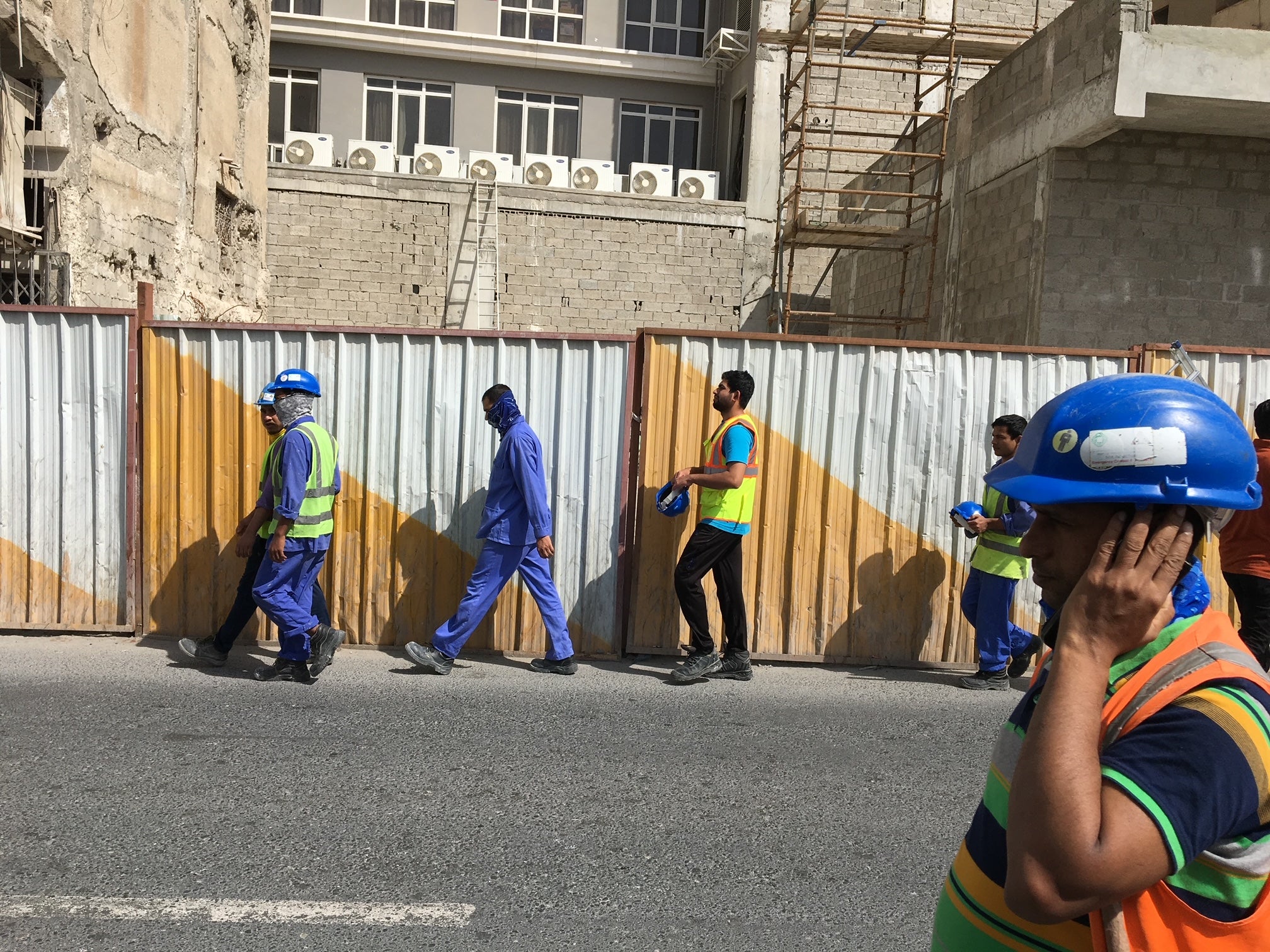Migrant labourers in Qatar lose jobs weeks before World Cup
The workers affected include some who work on Stadium 974 and Lusail Stadium

Nepali construction workers have been made redundant ahead of the World Cup without proper notice, complete wages, or end-of-service benefits, a new investigation by migrant-rights.org has found.
The workers affected include some who work on Stadium 974 and Lusail Stadium, which will both host World Cup matches, as well as a number of other projects connected to the tournament, which begins in just two months. The Lusail Stadium is the venue for the World Cup final.
NGOs and human rights activists had feared workers could be sent home ahead of Qatar 2022, after a government circular reportedly directed companies to reduce workforces and finalise projects before the tournament.
The circumstances affect workers all the more since many took out punishing loans to go and work in Qatar in the first place, only to be sent home without sufficient notice or compensation, leaving them in debt.
While companies can give workers a period off known as “long leave”, they are supposed to provide round-trip tickets, but many workers have complained to investigators that this hasn’t been the case.
There is a widespread feeling that the directive was solely about image and not having migrant workers – whose treatment has been such a criticised aspect of Qatar 2022 – so visible for the duration of the tournament.
A summation by the Business and Human Rights Resource Centre relayed allegations against several companies.
Workers at Al Bandary Engineering and Electro Watt report their contracts being terminated without proper notice and not being paid their owed dues.
Some of those who protested over months of unpaid wages last month were detained and deported.
Workers at Redco International report losing their jobs without proper notice and receiving full end-of-service benefits, non-payment of wages, failure to provide contracts, payment of recruitment fees and misuse of short-term visas.
Al Samit Manpower is meanwhile accused of recruiting workers by telling them they could work on World Cup projects for two years with no issue, only for the workers to report subsequent labour abuse by employees.
Workers at Bin Omran Trading and Contracting report being terminated without proper notice or full dues, being asked to sign a document attesting to having received everything, and non-payment of wages. Employees at Hassanesco complained of being sent home without receiving owed wages, overtime pay or end-of-service benefits.
Both The Independent has approached all the companies for comment but has not yet received any response. Hassanesco did respond to migrant-rights.org, but none of the others got back to BHRRC.
Fifa meanwhile states: “Fifa is not aware of any policy at the host country level mandating workers to leave Qatar ahead of the Fifa World Cup 2022. However, we are in touch with our counterparts in Qatar and the ILO [International Labour Organisation] to look into specific cases where companies may have terminated contracts in an improper manner.”
Pramod Acharya, an investigative journalist who was central to the work on Migrant Rights project, says: “Before going to Qatar, the workers had high hopes of earning money and supporting their families financially. But their expectations were shattered as they couldn’t work for the entire contract period, and many of them returned empty-handed. Now, these workers are in a debt trap. They took loans to pay the recruitment fees but were sent home even before they could repay the loans. Now they are even more desperate to go abroad. That means they will have to take loans again, and they will continue to be in a debt trap for a longer period of time.”
Subscribe to Independent Premium to bookmark this article
Want to bookmark your favourite articles and stories to read or reference later? Start your Independent Premium subscription today.

Join our commenting forum
Join thought-provoking conversations, follow other Independent readers and see their replies